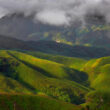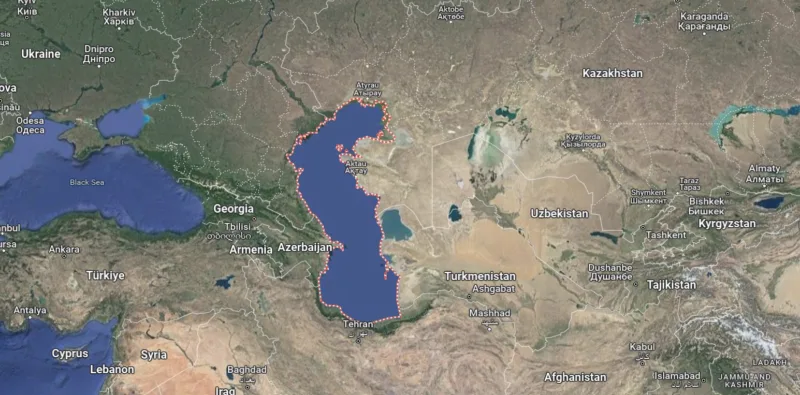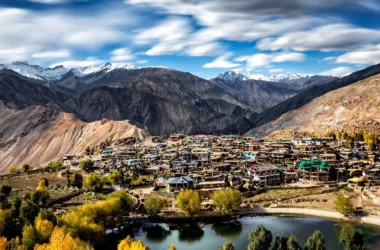The Caspian Sea, a captivating expanse of water surrounded by five countries, holds within its depths a tapestry of history, culture, and natural wonders. In this article, we embark on a journey to unravel the secrets of the Caspian Sea, delving into its significance, unique features, and the mysteries that make it a marvel on Earth.
Caspian Sea: A Geographical Marvel
The Caspian Sea’s Geological Tapestry
The Caspian Sea, nestled between Europe and Asia, boasts a geological richness that spans millions of years. From the folds of the Caucasus Mountains to the expansive coastal plains, every contour tells a story of Earth’s transformative forces.
Caspian Sea Geography
The Coastal Diversity
Exploring the Caspian Sea’s coastline reveals a fascinating spectrum of landscapes—from the rocky cliffs of Azerbaijan to the serene beaches of Kazakhstan. Each stretch offers a unique perspective, inviting travelers and researchers alike.
Depths and Dynamics
Beneath the surface, the Caspian Sea conceals a world of mysteries. Dive into the depths, and you’ll encounter diverse marine life, from sturgeon to seals, creating a delicate balance in this aquatic ecosystem.
Caspian Sea: Gateway to History
Ancient Civilizations and Trade Routes
Tracing back to ancient times, the Caspian Sea served as a vital trade route, fostering cultural exchanges between civilizations. The remnants of historic ports and sunken treasures beneath its waters attest to its role as a gateway to the past.
Caspian Sea History
Silk Road Connections
Discover how the Caspian Sea became an integral part of the Silk Road, facilitating trade between East and West. Its shores witnessed the exchange of goods, ideas, and the blending of diverse cultures.
Caspian Sea in Mythology
Delve into the myths and legends surrounding the Caspian Sea. From tales of mythical creatures beneath the waves to stories of legendary journeys, the sea has been a muse for storytellers throughout history.
Caspian Sea: Navigating Modern Realities
Economic Significance
In the 21st century, the Caspian Sea remains a crucial economic hub. Rich in oil and natural gas, the region surrounding the sea plays a pivotal role in global energy markets, shaping geopolitical dynamics.
Caspian Sea Economy
Oil and Gas Reserves
Explore the vast oil and gas reserves beneath the Caspian Sea’s seabed. The extraction and exportation of these resources have reshaped the economic landscapes of countries bordering the sea.
Environmental Challenges
However, this economic prosperity comes with environmental challenges. Learn about the efforts and initiatives in place to balance economic interests with the need for sustainable environmental practices.
Caspian Sea: Answering Curiosities
Caspian Sea Myths Debunked
Separating fact from fiction, this section addresses common myths and misconceptions about the Caspian Sea. From its size to the creatures inhabiting its waters, get ready for a reality check.
Caspian Sea Myths
Myth: The Caspian Sea is a Sea
Unravel the truth behind the nomenclature. Despite its name, the Caspian Sea is technically a lake. Learn about the historical reasons for this classification and the implications it carries.
Myth: Caspian Sea Monsters
Explore the lore of sea monsters in the Caspian Sea. Spoiler alert: No mythical creatures lurk beneath the waves. Discover the real inhabitants that contribute to the sea’s biodiversity.
Frequently Asked Questions (FAQs)
Is the Caspian Sea the largest lake in the world?
Yes, the Caspian Sea holds the title of the world’s largest inland body of water.
How many countries border the Caspian Sea?
The Caspian Sea is bordered by five countries: Russia, Kazakhstan, Turkmenistan, Iran, and Azerbaijan.
Can you swim in the Caspian Sea?
Absolutely! The Caspian Sea offers unique swimming experiences, with varying conditions along its diverse coastlines.
What is the Caspian Sea’s average depth?
The average depth of the Caspian Sea is around 692 meters (2,276 feet).
Are there endangered species in the Caspian Sea?
Yes, the Caspian Sea is home to several endangered species, including the Caspian seal and sturgeon.
How has human activity affected the Caspian Sea’s ecosystem?
Human activities, particularly related to oil and gas extraction, have presented challenges to the Caspian Sea’s ecosystem. Conservation efforts are ongoing to mitigate these impacts.
Similar Articles
Conclusion
As we conclude our exploration of the Caspian Sea, its allure becomes undeniable. From its geological wonders and historical significance to its modern-day economic role, the Caspian Sea stands as a testament to the dynamic interplay between nature and human civilization.









